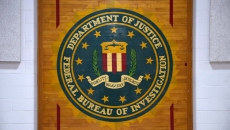Privacy & Security
KSB Hospital VP and CIO Ray Sharp discusses telehealth, cybersecurity training for personnel and how patient data can support clinical decision-making.
The government’s new cybersecurity bill could add millions of dollars to the budgets of hospitals already contending with the price of COVID-19.
Chronic staffing shortages, the need for immutable back-ups, reliance on reactive security technologies – these are big cybersecurity challenges. One expert sees a path forward.
The warnings followed an alert from federal security agencies about Russian state-sponsored threat actors exploiting default protocols and known vulnerabilities.
New feature revokes fraudulent certificates in all members states.
Find out why criminals are targeting patients at home, how criminals are trying to access hospital and health system RPM servers – and what CISOs and IT professionals should be doing to fight back.
The NLP/AI product transforms unstructured documents into analytics-ready data. A secure enterprise cloud service protects data backups with an offline and immutable storage location.
From on the ground in Orlando, HIMSS Media editors talk through cybersecurity, health equity, interoperability and takeaways from the conference.
At the HIMSS22 Healthcare Cybersecurity Forum on Monday, ethical hacker Kevin Johnson offered some unique perspective on what the bad guys are really up to when they target health systems.
Federal Bureau of Investigation special agents told HIMSS22 attendees that organizations' response should include plans for contacting the agency.









